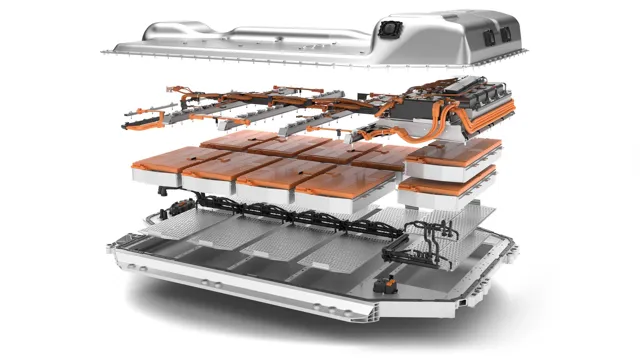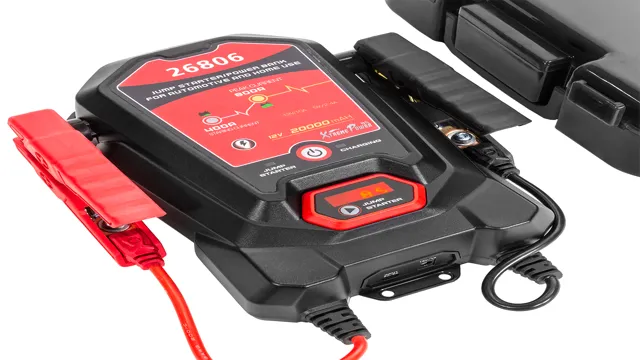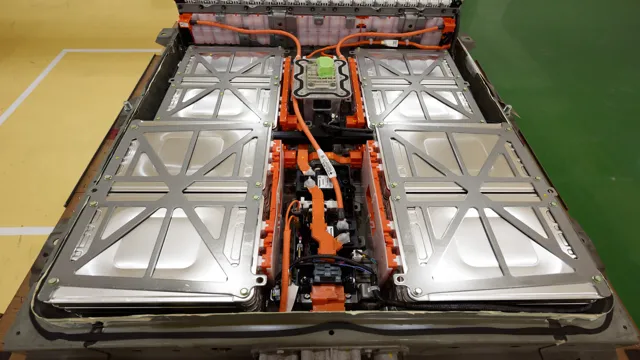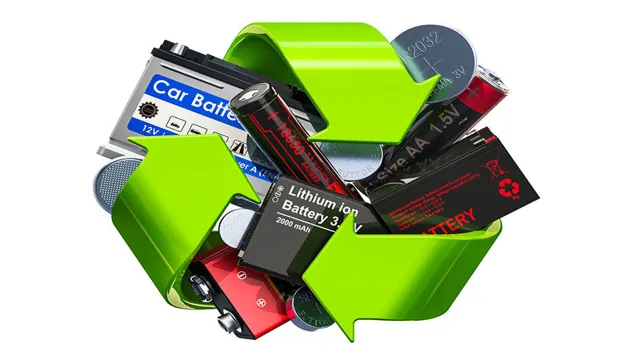Revolutionizing Mobility: Exploring the Best Electric Car Batteries in the UK
Electric cars are quickly becoming a popular option for drivers looking for a more eco-friendly and cost-effective mode of transportation. However, one crucial aspect of owning an electric car is its battery. As a UK driver, you might be wondering about the different types of electric car batteries available, how they work, and where you can get them.
Fear not, because we’ve got you covered with our comprehensive guide on electric car batteries in the UK. In this guide, we’ll go over everything you need to know about electric car batteries, from the different types and how they work to how to maintain and replace them. We’ll also dive into the different options available in the UK when it comes to charging your electric car’s battery, whether it’s at home or on the go.
We understand that electric car batteries may seem daunting, but trust us when we say that they’re not as complicated as you might think. By the end of this guide, you’ll have a clearer understanding of electric car batteries and be ready to make an informed decision about which one is right for you. So hop on in and let’s get started!
Battery Basics
When it comes to electric car batteries in the UK, there are a few key things to keep in mind. First and foremost, it’s important to understand the basics of how these batteries work. Essentially, electric car batteries are rechargeable units that store energy and power the car’s electric motor.
They typically use lithium-ion technology and can take several hours to fully charge depending on the type of charger being used. It’s also important to note that while electric car batteries are becoming increasingly common in the UK, they can still be quite expensive to replace or repair. However, as technology continues to improve and more automakers embrace the electric car revolution, it’s possible that prices will come down over time.
In the meantime, it’s important to do your research and choose a car with a battery that meets your individual needs and budget. So, if you’re considering purchasing an electric car in the UK, make sure to educate yourself on the battery basics before making your final decision.
Lithium vs. Lead-Acid Batteries
When it comes to choosing a battery for your device or vehicle, two common options are lithium and lead-acid batteries. Both have their own advantages and disadvantages. Lithium batteries are known for their high energy density, meaning they can store more energy in a smaller and lighter package.
They also have a longer lifespan and don’t require the same amount of maintenance as lead-acid batteries. However, they can be more expensive and are not as readily available. On the other hand, lead-acid batteries are less expensive and more widely available.
They also perform better in colder temperatures. But they are heavier, larger, and require regular maintenance to keep them working properly. Ultimately, the choice between lithium and lead-acid batteries depends on your specific needs and budget.
If you need a high-performance, low-maintenance battery and don’t mind the higher cost, lithium may be the way to go. But if you’re looking for a more affordable option that can withstand colder temperatures, lead-acid may be the better choice.

Battery Lifespan and Maintenance
When it comes to battery lifespan and maintenance, it’s important to understand some basic principles. First and foremost, all batteries have a limited lifespan; this means that eventually, even with the best care and maintenance, your battery will fail and need to be replaced. The lifespan of a battery is affected by a number of factors, including the type of battery, its age, and the conditions in which it is used.
For example, batteries that are exposed to high temperatures will generally have a shorter lifespan than those that are kept at room temperature. It’s also worth noting that some types of batteries, like lithium-ion batteries, are more prone to degradation over time than others. To keep your battery in the best possible condition, it’s important to follow the manufacturer’s recommendations for charging and storage.
This might include avoiding overcharging, keeping the battery at a moderate level of charge when storing it, and using charging cables and adapters that are compatible with your device. By taking these steps, you can help to extend the lifespan of your battery and ensure that it performs at its best for as long as possible.
Top Electric Car Batteries in the UK
When it comes to electric cars in the UK, the battery is everything. It’s what powers the car and determines its range and overall performance. But, with so many electric car battery options out there, which one should you choose? Well, there are a few standout batteries in the UK that are worth considering.
Perhaps the most popular is the Tesla Model S battery, which has a range of up to 370 miles and can recharge up to 80% in just 40 minutes. Another noteworthy option is the Nissan Leaf’s battery, which boasts a range of up to 168 miles and can recharge up to 80% in just 40-60 minutes. And, let’s not forget the Kia e-Niro battery, which can go up to 282 miles on a single charge and comes with a 7-year, 100,000-mile warranty.
Ultimately, the right electric car battery for you will depend on your specific needs and preferences, but these three options are definitely worth considering.
Tesla Model S Battery
When it comes to electric car batteries in the UK, the Tesla Model S battery is certainly a top contender. Known for its impressive range and quick charging capabilities, the Model S battery uses advanced technology to deliver a smooth and efficient ride. The battery boasts a 100 kWh capacity, which translates to a range of up to 370 miles on a single charge.
Plus, with the ability to supercharge at up to 200 kW, this electric car can regain up to 75 miles of range in just 5 minutes. That means less time spent waiting around and more time spent cruising on the road. Overall, the Tesla Model S battery is a standout option for anyone looking for a powerful and reliable electric car.
Nissan Leaf Battery
One of the top electric car batteries in the UK market is the Nissan Leaf Battery. This advanced battery technology provides an impressive driving range and takes electric motoring to a whole new level. The Nissan Leaf Battery is a lithium-ion battery pack that has a capacity of 40 kWh, providing a range of up to 168 miles on a single charge.
The battery is designed to give drivers a smoother ride, with instant torque and acceleration. A cool feature of the Nissan Leaf is the e-Pedal, which allows drivers to accelerate and brake with just one pedal, allowing for a more enjoyable and effortless driving experience. The Nissan Leaf is not only eco-friendly but also low-cost to own and operate, making it an excellent choice for environmentally conscious consumers.
So, if you’re in the market for an electric car with an advanced battery technology, the Nissan Leaf Battery should be at the top of your list!
BMW i3 Battery
The BMW i3 Battery is one of the top electric car batteries in the UK. This electric car battery has a range of up to 188 miles on a full charge, making it ideal for those who want to travel long distances without worrying about running out of power. One of the key features of this battery is that it can be fully charged in just over three hours using a standard rapid charger.
Additionally, it comes with a range of intelligent features that optimize the battery’s performance, such as regenerative braking, which recovers energy during braking and feeds it back into the battery. The BMW i3 Battery is also 95% recyclable, making it an environmentally friendly option. If you’re looking for a reliable electric car battery with impressive range and performance, the BMW i3 Battery is a top choice.
Charging Your Electric Car Battery
When it comes to electric car batteries in the UK, it’s important to know how to charge them properly. First, make sure you have a compatible charging station or access to one. There are different types of charging stations, ranging from home outlets to rapid chargers, with varying charging speeds and costs.
Once you have that figured out, you can connect your car to the station and begin the charging process. It’s recommended to charge your battery up to at least 80% to prolong its lifespan, although you can charge it up to 100% if needed. Keep in mind that charging times can vary depending on your battery’s capacity and the charging station’s speed.
Lastly, it’s a good idea to monitor your battery’s charging levels through the car’s dashboard or app. By following these steps, you can ensure your electric car battery stays charged and healthy for your next road trip.
Home Charging vs. Public Charging
When thinking about charging your electric car battery, there are two main options: home charging and public charging. Home charging provides convenience and flexibility, as you can simply plug your car in overnight and wake up with a full battery. Plus, you can choose to charge your car with clean energy sources like solar panels.
On the other hand, public charging is necessary for longer trips or if you don’t have access to home charging. However, public charging can be more expensive and time-consuming, as you may need to search for available stations and wait for your car to charge. Ultimately, it’s up to you to determine which charging option works best for your lifestyle and needs.
Just remember to plan ahead for longer trips and consider investing in home charging to save time and money in the long run.
Fast Charging vs. Slow Charging
When it comes to charging your electric car battery, there are two primary methods – fast charging and slow charging. Slow charging is the most common method used at home, as it involves plugging your car into a standard wall outlet and charging overnight. This is a great option if you have a consistent routine and don’t need to charge in a hurry.
Fast charging, on the other hand, allows you to charge your car at a much quicker pace, commonly done at charging stations. This is a useful option for commuters and long-distance travels, as it can get you back on the road much faster. However, it’s essential to note that fast charging can be more expensive and potentially harmful to the battery in the long run.
It’s essential to find a balance between the two methods based on your lifestyle and the needs of your vehicle. Ultimately, always aim to use a dedicated electric car charger over a traditional outlet for safety and efficiency.
Conclusion: The Future of Electric Car Batteries in the UK
In conclusion, electric car batteries are the key to unlocking a greener and more sustainable transportation system in the UK. Not only do they help reduce carbon emissions and improve air quality, but they also offer a unique opportunity for innovation and technological advancement. As we continue to develop more efficient and affordable battery technologies, we can look forward to a future where electric vehicles will become the norm, enabling us to drive towards a cleaner, brighter future for all.
“
FAQs
What companies in the UK produce electric car batteries?
There are several companies in the UK that produce electric car batteries such as British Volt, Hyperbat, and Zenobe Energy.
How long do electric car batteries in the UK typically last?
The lifespan of electric car batteries in the UK vary based on several factors such as driving habits, climate, and maintenance, but they typically last between 8 and 12 years.
What is the cost of replacing an electric car battery in the UK?
The cost of replacing an electric car battery in the UK can vary but typically ranges from £3,000 to £10,000 depending on the make and model of the car.
What percentage of new car sales in the UK are electric cars?
As of 2021, electric cars account for roughly 10% of new car sales in the UK and this number is expected to continue to rise in the coming years.





